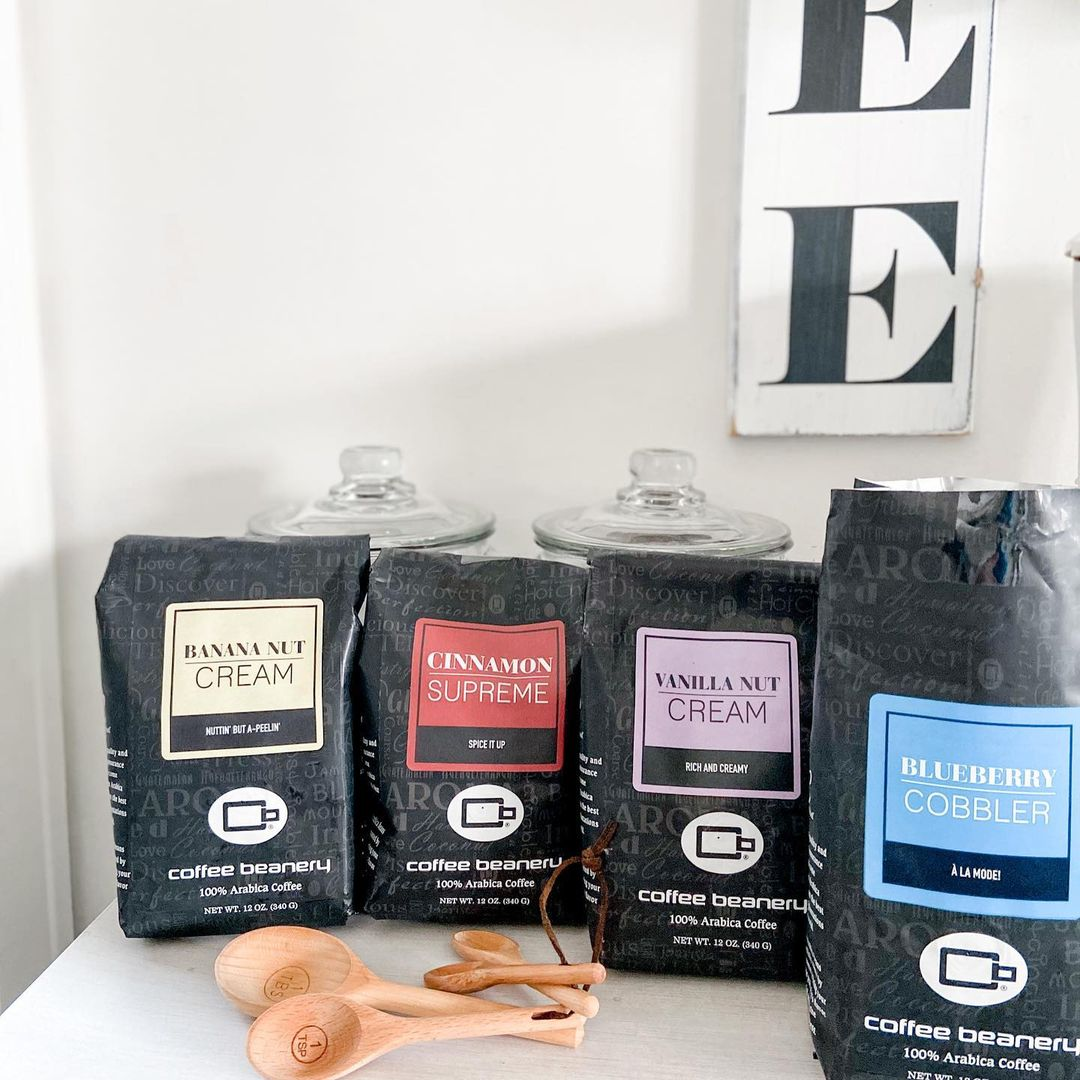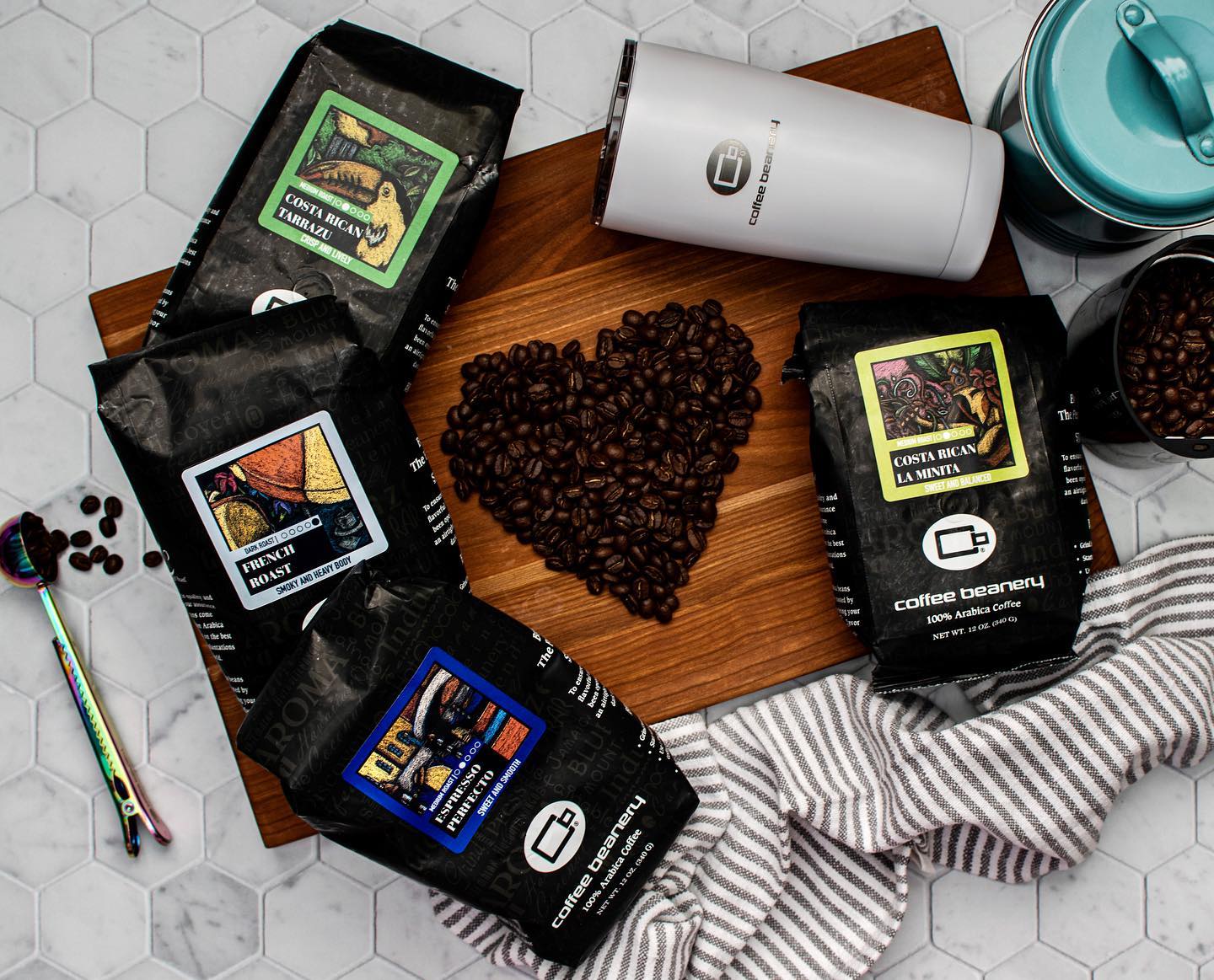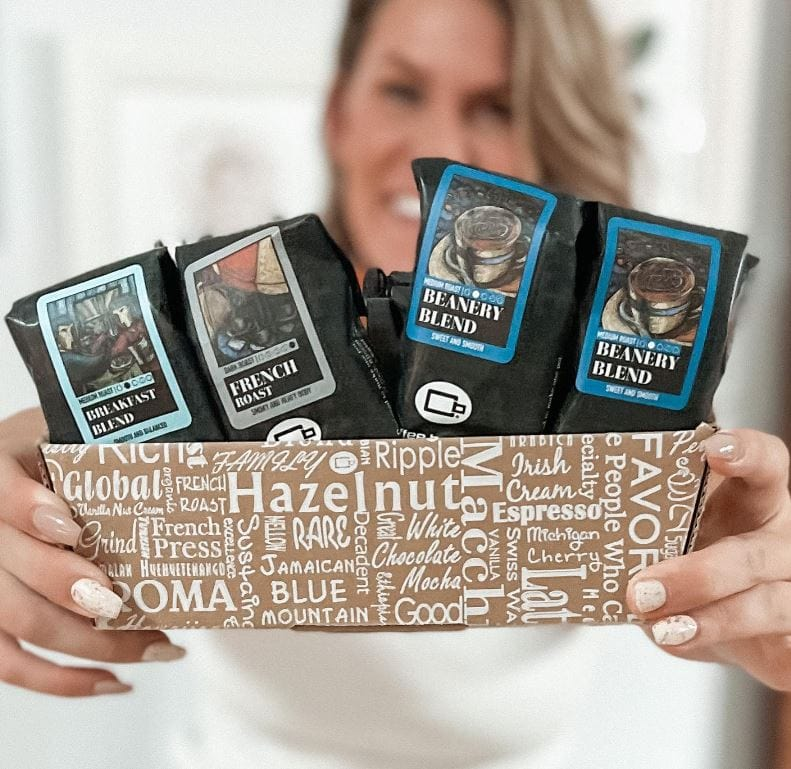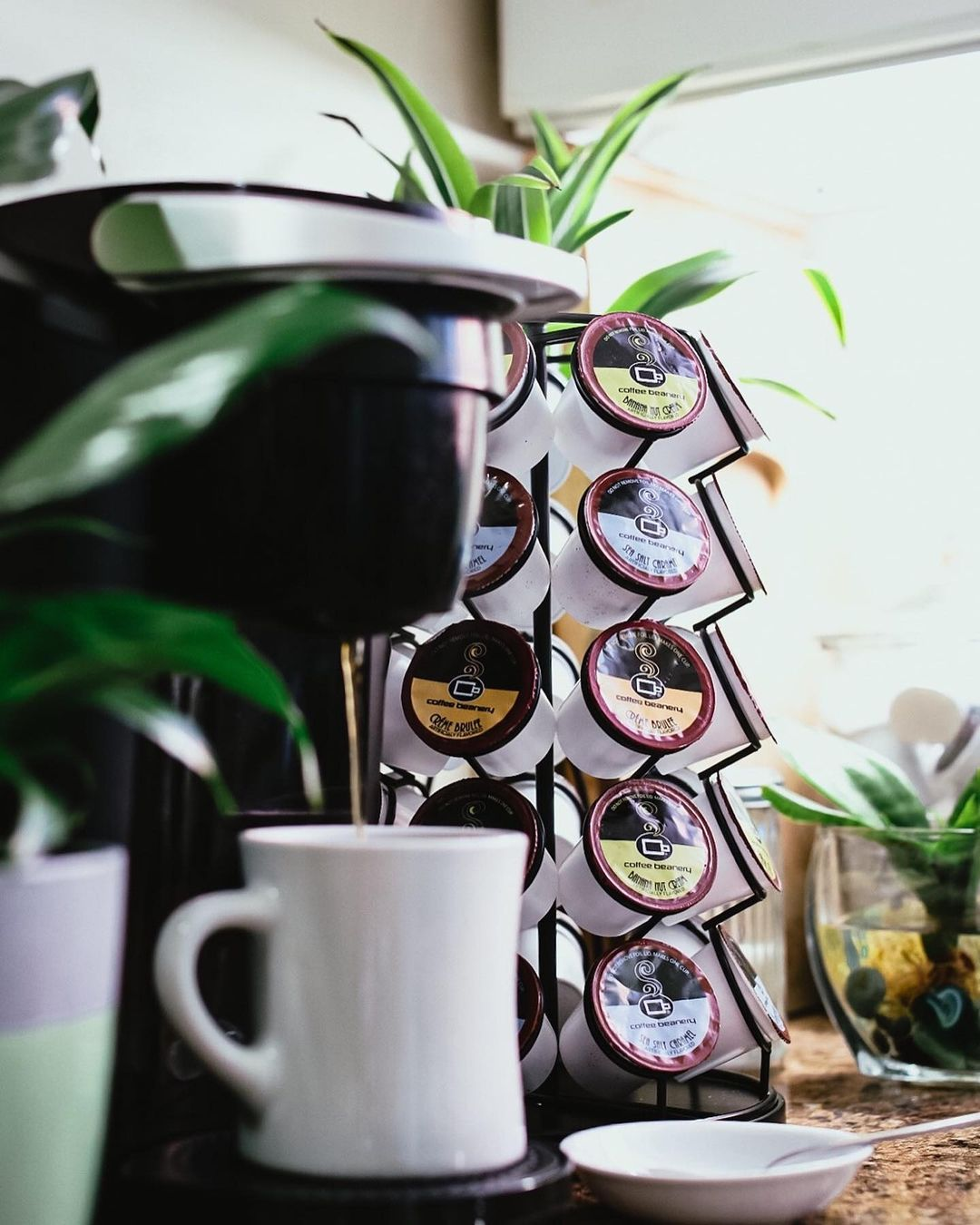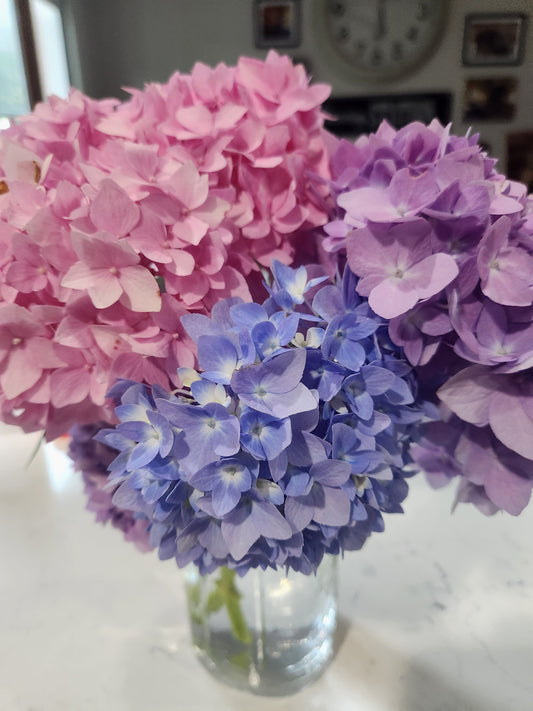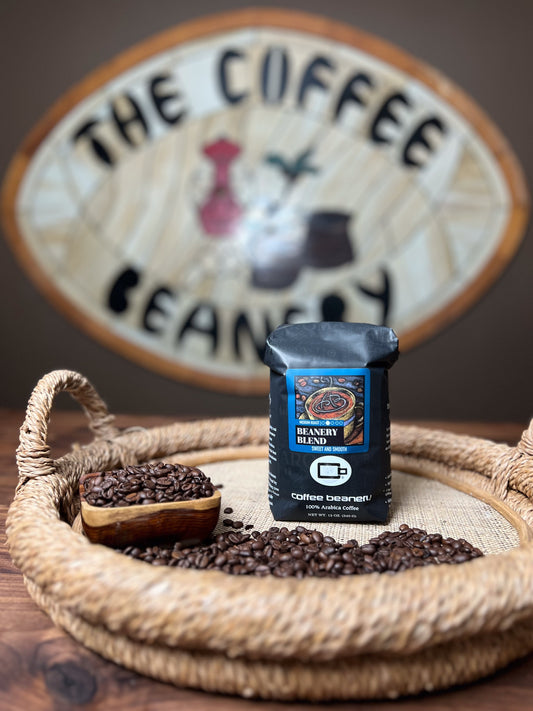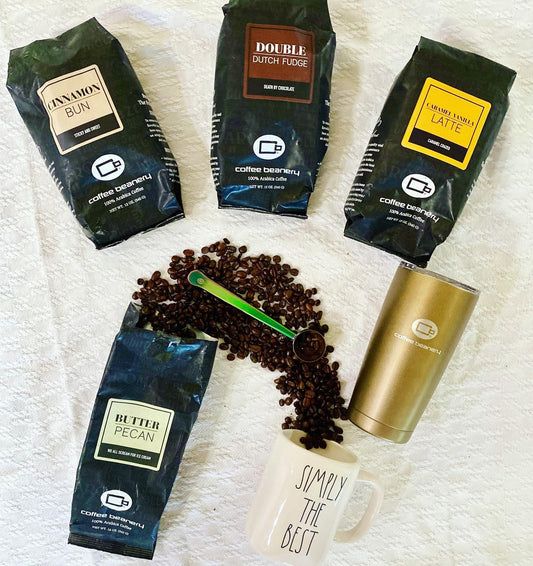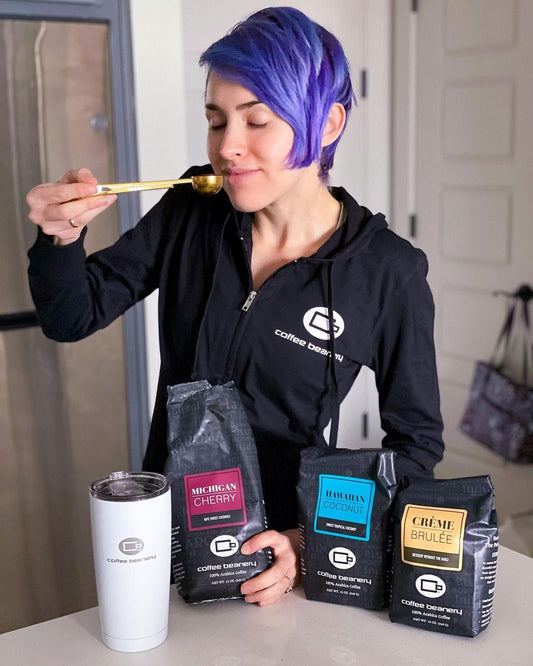Coffee. It's the comforting ritual that kickstarts our mornings, fuels our afternoons, and often brings us together. As one of the world's most beloved beverages, it's no surprise that a few myths and misconceptions have brewed up over time.
At The Coffee Beanery, we're passionate about coffee – from bean to cup – and we want to ensure you're enjoying your brew with all the right information. Let's bust some common coffee myths!
Myth #1: Darker Roasts Have More Caffeine
This is perhaps one of the most persistent coffee myths out there! Many believe that the bolder, more intense flavor of a dark roast means a bigger jolt of caffeine.
The Truth: Actually, it's quite the opposite, or at least, they're roughly comparable. The longer coffee beans are roasted, the more caffeine is cooked out of them. So, a dark roast typically has less caffeine than a lighter roast. If you're measuring by weight, caffeine content will be very similar. However, if you're measuring by scoops, dark roast beans are less dense (because they've expanded more during roasting), so a scoop of dark roast will have more beans, potentially leading to slightly more caffeine by volume. For a true caffeine punch, look to a lighter roast!
Myth #2: Coffee Dehydrates You
The idea that coffee leaves you parched is a long-standing concern for many coffee lovers.
The Truth: While caffeine is a mild diuretic (meaning it makes you urinate more), the hydrating effects of the water in coffee largely outweigh this. Numerous studies have shown that moderate coffee consumption (up to 4 cups a day) contributes to your daily fluid intake and does not lead to dehydration in regular coffee drinkers. So, go ahead and enjoy your cup – it counts towards your hydration!
Myth #3: Storing Coffee in the Fridge Keeps It Freshest
You might think the cold environment of your refrigerator is the best place to store your precious beans, but this can actually do more harm than good.
The Truth: Coffee is highly porous and acts like a sponge, absorbing odors and moisture from its surroundings. Your refrigerator is full of both! Storing coffee in the fridge can lead to stale, off-tasting coffee. The best way to store coffee is in an airtight, opaque container in a cool, dark place like a pantry. For longer-term storage (weeks to months), your freezer is actually a better option, but only if the coffee is in a truly airtight container and isn't taken in and out frequently, which can cause condensation.
Myth #4: Espresso Has More Caffeine Than Drip Coffee
Many assume that because espresso is so strong and concentrated, it must contain a massive amount of caffeine per serving.
The Truth: While espresso is certainly more concentrated per ounce, a typical serving size of drip coffee usually contains more total caffeine. A standard shot of espresso (about 1-1.5 oz) has around 60-100 mg of caffeine. A typical 8-ounce cup of drip coffee can have anywhere from 95-200 mg of caffeine, depending on the brew method and bean. So, that large latte might feel like a big boost, but your regular drip brew might be delivering more caffeine.
At Coffee Beanery, we're dedicated to providing you with the freshest, highest-quality beans, so you can enjoy every sip, free from misconception.
